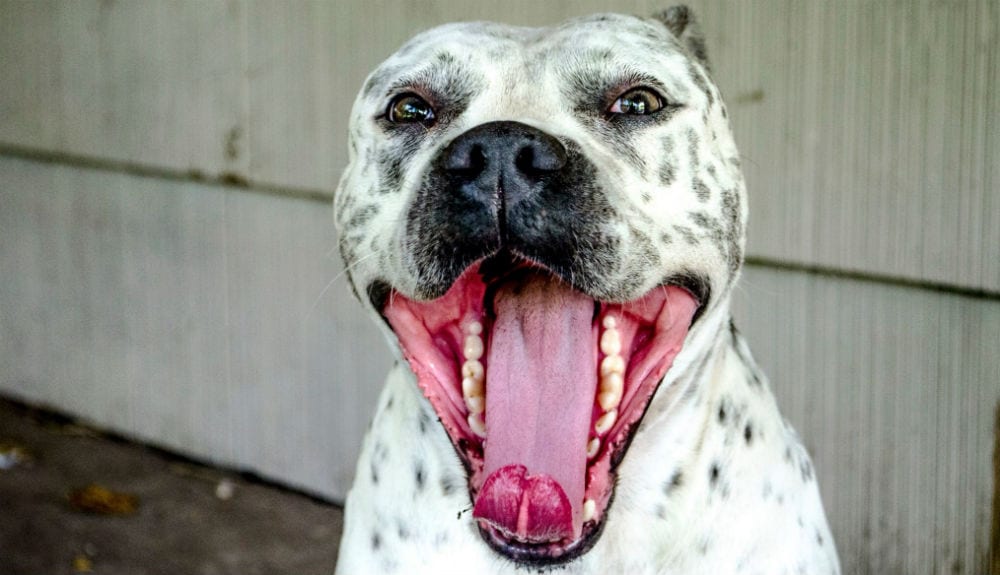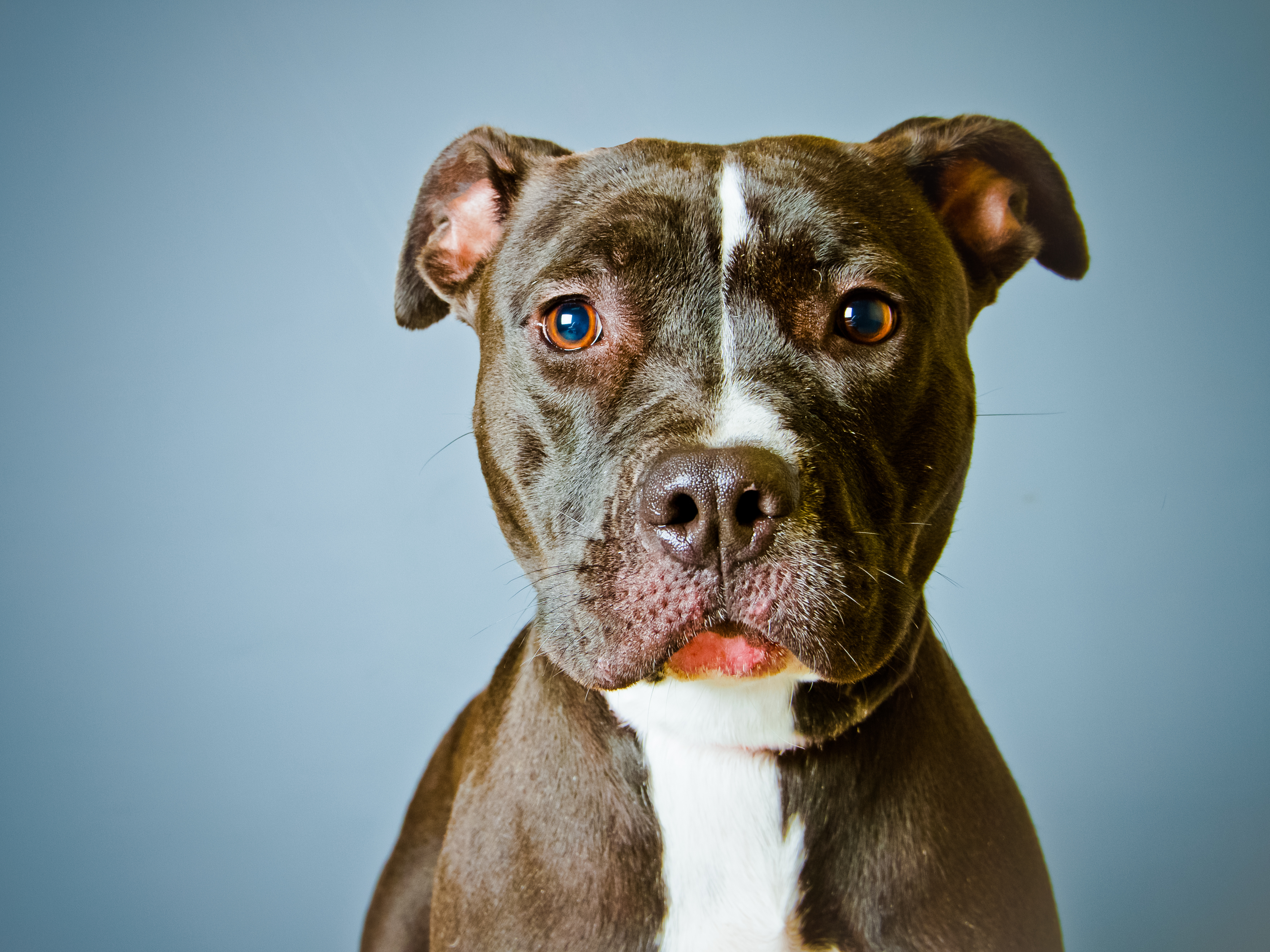Did you know that pit bulls were once known as “nanny dogs”? In the early 20th century, pit bulls were commonly used as family pets and were even trusted to watch over children. Their loyalty and gentle nature make it hard to believe the negative stigma they now face.
Despite the widespread belief that pit bulls are inherently dangerous, studies have shown that breed-specific legislation is not an effective solution. In fact, the American Veterinary Medical Association states that it is unethical to ban or restrict a specific breed without considering individual behavior. It is important to focus on responsible ownership, proper training, and socialization to address the issue of dog aggression, regardless of the breed. By promoting education and advocating for responsible care, we can work towards diminishing the unfounded fear surrounding pit bulls and creating safer communities for both humans and animals.
Pit bulls are not inherently bad. Like any dog breed, their behavior can be influenced by factors such as socialization, training, and treatment. It’s essential to focus on responsible ownership and proper training to ensure well-behaved pit bulls. Negative stereotypes surrounding pit bulls are often based on misinformation. When raised in a loving environment with appropriate guidance, they can be loyal, affectionate, and gentle companions.

Are Pit Bulls Bad? Debunking the Myths and Understanding the Truth
Pit bulls have long been a topic of controversy and debate. Many people hold the belief that pit bulls are inherently dangerous and aggressive, but is this really true? In this in-depth article, we will delve into the world of pit bulls, examining their history, temperament, and misconceptions surrounding them. By the end, you’ll have a better understanding of whether pit bulls are truly bad or if they are victims of unfair labeling.
The History of Pit Bulls: More than Just Fighting Dogs
Contrary to popular belief, pit bulls were not initially bred for aggression or fighting. They were actually developed from crossbreeding various terrier and bulldog breeds for purposes like hunting, farm work, and companionship. In the early 19th century, pit bulls were commonly referred to as “nanny dogs” due to their gentle and protective nature towards children.
However, it was during the 20th century that pit bulls started gaining recognition as fighting dogs. They were unfortunately exploited for illegal dogfighting activities, which led to the misconception that pit bulls are inherently aggressive. It’s important to note that dog aggression and human aggression are not the same, and the latter is extremely rare in pit bulls when properly bred and raised.
Understanding Pit Bull Temperament: It’s All About Responsible Ownership
Pit bulls, like any other breed, can have varying temperaments depending on their genetic background, upbringing, and socialization. It’s crucial to remember that no dog is born inherently “bad” or aggressive. Proper training, socialization, and responsible ownership play a significant role in shaping a pit bull’s behavior.
Studies have shown that pit bulls can have a similar temperament to other popular family breeds, such as Labrador Retrievers and Golden Retrievers. They can be loving, loyal, and highly trainable dogs. It’s essential for owners to invest time in obedience training, positive reinforcement techniques, and providing proper mental and physical stimulation to ensure a well-behaved and balanced pit bull.
Common Misconceptions about Pit Bulls: Separating Fact from Fiction
Misconceptions about pit bulls have perpetuated a negative image of the breed. However, many of these beliefs are unfounded and based on stereotypes. Let’s debunk some of the most common myths surrounding pit bulls:
Myth #1: Pit bulls have a “locking jaw” mechanism. This widely spread myth suggests that pit bulls have a unique physiological trait that enables them to lock their jaws. In reality, the anatomy of a pit bull’s jaw is no different from that of other dog breeds.
Myth #2: All pit bulls are aggressive towards people. This stereotype ignores the countless pit bulls that live as loving family pets, interacting harmoniously with their owners and children. It’s important to assess each dog individually based on their behavior and upbringing.
Myth #3: Pit bulls cannot coexist with other animals. While some pit bulls may have a higher prey drive due to their terrier heritage, proper socialization and training can help them live peacefully alongside other animals.
Understanding Responsible Ownership and Promoting Positive Change
Advocating for Responsible Pit Bull Ownership
One of the most effective ways to combat the negative perception of pit bulls is through responsible ownership. This involves educating potential owners about the breed’s needs, characteristics, and the commitment required to raise a well-behaved dog. Responsible owners should focus on socialization, training, and providing a safe environment for their pit bulls.
Legislation and Breed-Specific Laws: Evaluating Their Effectiveness
Breed-specific legislation (BSL) refers to laws or regulations that target specific breeds, often including pit bulls, with restrictions or bans. While the intention may be to improve public safety, studies have shown that BSL is ineffective in reducing dog bite incidents. Instead, communities should focus on implementing responsible dog ownership laws that apply universally to all breeds.
Raising Awareness: Challenging Stereotypes and Fostering Understanding
Education and awareness play a crucial role in changing public perception of pit bulls. Encouraging positive interactions between pit bulls and the community, organizing training and socialization events, and sharing success stories can help challenge the stereotypes associated with the breed.
In conclusion, it is clear that pit bulls are not inherently bad or dangerous dogs. Misconceptions, negative media portrayal, and lack of responsible ownership have contributed to their unfair reputation. Understanding their history, individual temperament, and promoting responsible ownership are key to debunking the myths surrounding pit bulls and giving them a chance to be seen for the loving and loyal companions they can be.
Key Takeaways: Are Pit Bulls Bad?
- Pit bulls are not inherently bad or aggressive; their behavior depends on how they are raised and treated.
- Like any other dog breed, proper training and socialization are essential for pit bulls.
- Media portrayal and misconceptions have contributed to the negative stereotypes surrounding pit bulls.
- Pit bulls can make loving and loyal pets with the right care and responsible ownership.
- It is important to focus on responsible pet ownership and individual dog behavior rather than stereotyping entire breeds.
Frequently Asked Questions
Curious about pit bulls? Here are some common questions people have.
Are pit bulls naturally aggressive?
Pit bulls are not naturally aggressive. Just like any other dog breed, their behavior is influenced by their upbringing, socialization, and training. While pit bulls are known for their strength and determination, it is important to remember that individual temperaments can vary. Proper care, training, and socialization can help pit bulls grow into friendly and well-behaved dogs.
It’s also worth noting that breed-specific legislation (BSL) often targets pit bulls based on misconceptions and stereotypes. Many experts argue that it is unfair and ineffective to judge an entire breed based on the actions of a few individuals.
Are pit bulls more dangerous than other breeds?
No, pit bulls are not inherently more dangerous than other dog breeds. Statistical data shows that there is no specific breed associated with a higher likelihood of aggression or biting. Aggression in dogs can be influenced by various factors, such as improper socialization, mistreatment, neglect, or even underlying health issues.
It’s important to remember that any dog, regardless of breed, has the potential to exhibit aggressive behavior. Responsible dog ownership, including proper training, socialization, and attentive care, can greatly reduce the risk of aggressive behavior in any breed.
Are pit bulls suitable family pets?
Yes, pit bulls can be loving and loyal family pets. In fact, many pit bulls have earned reputations as affectionate and gentle companions, especially when raised in loving and nurturing environments. Like any other dog, it is important to provide them with proper training, socialization, and a safe home environment.
When considering a pit bull as a family pet, it is crucial to assess the individual dog’s temperament, personality, and history. Adoption agencies and shelters often evaluate dogs, providing insight into their behavior and compatibility with families. Responsible breeders also prioritize temperament and socialization in their breeding programs.
How can I ensure my pit bull is well-behaved?
To ensure your pit bull is well-behaved, follow these key strategies:
1. Start with proper training from a young age, focusing on basic obedience commands, socialization, and positive reinforcement techniques.
2. Expose your pit bull to different environments, people, and animals to promote well-rounded socialization.
3. Use positive reinforcement techniques like treats, praise, and rewards to encourage good behavior.
4. Regular exercise, mental stimulation, and quality time together are essential to keeping your pit bull happy and well-behaved.
What should I do if my pit bull shows aggression?
If your pit bull displays aggressive behavior, it is essential to address the issue promptly and responsibly. Here are steps to take:
1. First, consult with a professional, such as a veterinarian or a certified dog trainer, to rule out any underlying medical issues that may be causing aggression.
2. Seek professional guidance from an experienced trainer or behaviorist who specializes in working with aggressive dogs.
3. Create a safe and structured environment for your pit bull, ensuring they are not put in situations that may trigger aggressive behavior.
4. Be patient and consistent with training techniques, using positive reinforcement to reward calm and non-aggressive behavior.
Remember, aggression in dogs should not be ignored, and professional guidance is crucial to address the issue effectively.

Summary
Pit bulls are not inherently bad dogs. Like any other breed, they can be friendly and loving if properly trained and socialized. It is unfair to judge all pit bulls based on the actions of a few aggressive individuals.
However, it is important to recognize that pit bulls have the potential to cause harm due to their physical strength and powerful jaws. Responsible ownership, including training, supervision, and following breed-specific legislation, is essential to ensure the safety of both the dog and the community. Education and understanding can help dispel misconceptions and promote responsible pet ownership.
